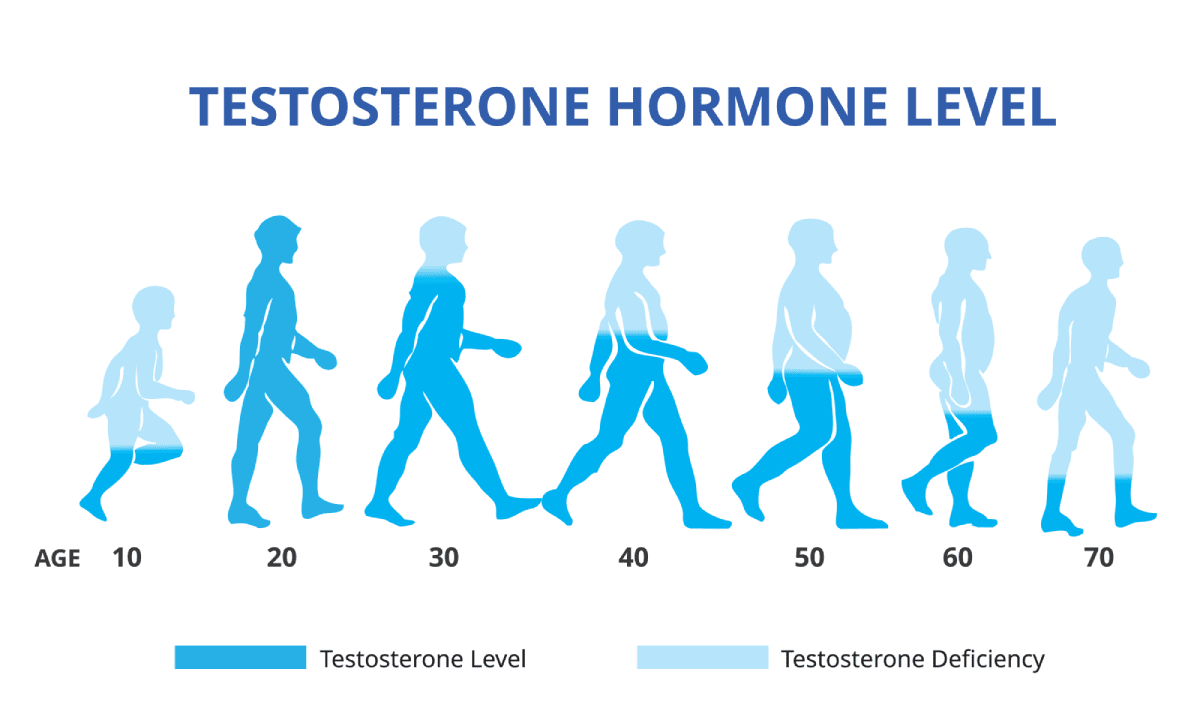
Laser Eye Surgery is a relatively common operation. It’s estimated that around 120,000 people in the UK have this procedure each year. This makes it one of the most often performed surgical procedures.
We have created a guide to the cost of laser eye surgery in the UK. This will help you to consider various factors if you decide to pay for private laser eye surgery. We will show you what types of treatment are available, the costs and the clinics in your area, to help you choose the best and safest options for your individual requirements.
Table of Contents
- 1. Introduction to Laser Eye Surgery
- 2. Cost of Laser Eye Surgery in the UK
- 3. What are the benefits of laser eye surgery?
- 4. What are the different laser eye surgery procedures available in the UK?
- 5. How to choose your laser eye surgeon or clinic
- 6. What will the operation involve?
- 7. Recovery after Laser Eye Surgery
- 8. What are the possible risks and complications?
- 9. FAQs
- 10. GLOSSARY OF USEFUL TERMS
Introduction to Laser Eye Surgery
Laser eye surgery is a common procedure that has proven to be highly successful in helping to correct vision problems such as myopia (short-sightedness), hyperopia (long-sightedness) and astigmatism (imperfection in the curvature of the eye). It is sometimes known as refractive surgery or laser vision correction.
This type of surgery uses a beam of light from a laser to make incredibly small and precise corrections, reshaping the transparent cornea at the front of the eye. The surgery is one of the most widely performed procedures in the world and the risks are relatively low but must still be considered.
Cost of Laser Eye Surgery in the UK
The cost of laser eye surgery in the UK ranges from £595 to £3,750 per eye. The precise cost will depend on the clinic, the technology used and the individual prescription of the patient.
Elements which effect the cost include:
- The surgeon completing the procedure
- Type of eye surgery
- Recovery costs and aftercare
- Which clinic you visit
- Your particular prescription
Detailed information about prices:
How much does an initial consultation cost?
Most clinics will offer a free consultation. Some may charge a small fee of £50 to £150.
Compare the cost of laser eye surgery
Here is an illustration of the prices charged by a selection of private clinics and details of what is included:
Laser Eye Surgery Clinics
| Clinic Name | Number of Clinics | Price Range Per Eye | Free Consultation | Free Aftercare |
|---|---|---|---|---|
| Optical Express | 121 | £595 - £2,995 | ✓ | ✓ |
| Optimax | 23 | £1,695 - £2,995 | ✓ | ✓ |
| Ultralase | 20 | £1,695 - £2,995 | ✓ | ✓ |
| Optegra | 9 | £1,795 - £2,495 | x | ✓ |
| OCL Vision | 8 | £1,975 - £2,750 | ✓ | ✓ |
| Centre for Sight | 3 | £2,450 - £2,675 | х | ✓ |
| London Vision Clinic | 1 | £2,780 - £3,450 | ✓ | ✓ |
| Moorfields Eye Hospital | 1 | £2,415 - £2,995 | x | ✓ |
| Focus Clinic | 1 | £2,400 - £3,750 | ✓ | ✓ |
How to pay for your eye surgery
Details of Finance Options Available
| Clinic Name | Price Range Per Eye | Deposit | Interest Free Period |
|---|---|---|---|
| Optical Express | £595 - £2,995 | £500 | 10 months |
| Optimax | £1,695 - £2,995 | 10% | 12 months |
| Ultralase | £1,695 - £2,995 | 10% | 12 months |
| Optegra | £1,795 - £2,495 | 10% | 24 months |
| OCL Vision | £1,975 - £2,750 | 10% | 6, 12 or 24 months |
| Centre for Sight | £2,450 - £2,675 | 20% | 24 months |
| London Vision Clinic | £2,750 - £3,450 | 10% | 24 months |
| Moorfields Eye Hospital | £2,415 - £2,995 | 0 | 6, 9 or 10 months |
| Focus Clinic | £2,400 - £3,750 | 10% | 12 months |
What are the benefits of laser eye surgery?
The main benefit is the correction of blurred vision. You may no longer need to wear glasses or contact lenses. The majority of patients will see an improvement within a few days and the results are usually long lasting.
Some of the benefits include:
- Improved vision. For many people with blurred vision, laser eye treatment can help rectify this problem.
- Fast and effective. The laser treatment typically lasts between a few seconds and a couple of minutes and the total time spent in the theatre is often less than 30 minutes. Depending on the type of surgery, you should start to see an improvement within 24 hours.
- Long-term solution. The effects of the surgery generally last for many years. However there is a small chance you may need to have additional adjustments, due to the natural ageing of your eyes.
- Eliminates the need for glasses. The majority of people will be able to stop wearing glasses entirely. Others will be able to reduce the number of circumstances where they are needed such as for night vision or reading.
What are the different laser eye surgery procedures available in the UK?
- Laser-Assisted In Situ Keratomileusis (LASIK). LASIK is the most commonly performed type of laser treatment in the UK. The surgeon will use a microscopic blade to open a small flap in the cornea. As it is peeled back, a laser will be used to reshape the cornea. The flap will be replaced at the end of the surgery. This is suitable for most vision problems, such as myopia, hyperopia and astigmatism. Bladeless LASIK is considered safer and more accurate than the original blade LASIK. Your surgeon will discuss which is best for your particular needs.
- Laser-Assisted Epithelial Keratomileusis (LASEK). LASEK treatment is primarily used as an alternative to LASIK surgery, especially if you have thin corneal skin. The outer layer of cells (epithelium) is removed, and the Bowman’s layer (outermost portion of the cornea located just underneath the epithelium) is corrected with a laser. Blade LASEK uses an automated blade, not a scalpel whereas Bladeless LASEK is described as an "all-laser" procedure. Once again, your surgeon will assess your individual circumstances and agree the most suitable approach.
- Refractive Lenticule Extraction, Small Incision Lenticule Extraction (ReLExSMILE). In ReLExSMILE surgery, a state of the art laser enables the surgeon to perform the repair without the need for a corneal flap. The tiny incision in the cornea will heal itself and this healing process is generally faster than alternative surgeries. This procedure is suitable for most patients and as it is minimally invasive, the chance of post-surgery side effects can be reduced.
- Photorefractive Keratectomy (PRK). This was the original vision correction procedure and was first performed in 1988. It involves removing the outer layer of cells (epithelium) so the surgeon can get direct access to the cornea. While this procedure is still available through certain clinics and tends to be the least expensive option, it is often only suitable for patients with the lowest prescription.
Wavefront is a new personalised eye mapping technology which is performed before LASIK surgery to identify irregularities in each individual patient’s eyes. It is also called iDesign, Intralese, Custom or High Profile. It enables the laser to be programmed to your individual specifications and treat more subtle vision irregularities. Some clinics include Wavefront mapping in their price structure, for others it is an optional extra.
Finally, for our older readers, we need to mention refractive lens replacement surgery or refractive lens exchange surgery (RLE) as it is also known. This surgery is often more suitable for patients aged 50 or over and those who have a glasses prescription which is higher than the normal range. It involves replacing the natural lens within the eye with a synthetic implant or intraocular lens: effectively, the procedure is the same as a cataract operation. Indeed, the procedure has the added advantage of stopping you developing a cataract later in life.
Lens replacement surgery or RLE may be a good option if you are unable to have laser eye surgery. The cost is generally between £3,000 and £4,500 per eye.
How much do the different types of laser eye surgery cost?
Range of laser eye surgery prices by treatment type:
| Treatment Type | Price From | Price To |
|---|---|---|
| LASEK | £595 | £1,795 |
| LASIK | £1,195 | £2,700 |
| LASEK (Bladeless) | £1,495 | £2,450 |
| LASIK (Bladeless) | £1,695 | £3,050 |
| ReLEx SMILE | £2,495 | £3,250 |
| PRK | £1,100 | £2,175 |
Can I get laser eye surgery on the NHS?
The circumstances in which laser eye surgery is available on the NHS are rare. You will need to have a serious condition. These include:
- If the condition would cause blindness if left untreated
- If the blood vessels were damaged
Laser eye surgery is not available on the NHS for conditions such as short- or long-sightedness, which can be treated with glasses or contact lenses.
Is Laser Eye Surgery Covered by Health Insurance?
As it’s an elective surgery, it’s unlikely that health insurance will cover the costs.
It should be noted there are a few instances where your insurer might be willing to make an exception. Some of the most common examples are:
- If allergies are stopping you from wearing glasses
- If you are going to go blind without the surgery
- The vision issues were caused as a result of a surgical error
If you have health insurance, contact your own provider to find out their policy with regards covering laser surgery.
How to choose your laser eye surgeon or clinic
You may be surprised to learn that surgeons are not legally required to hold specialist qualifications in ophthalmology to carry out refractive surgery.
So it is vitally important that you choose a surgeon who has the specialist training, qualifications and experience.
Your ophthalmic surgeon should hold a Certificate in Refractive Laser Surgery(CertRLS) or be on the General Medical Council (GMC) Specialist Register in Ophthalmology.
Don’t be afraid to ask about these qualifications!
You will be aware of some of the major providers of laser eye surgery as they are a common sight on the High Street but they may not always be your wisest choice.
Take your time to check out the independent clinics in your area as they could prove to be a more suitable option.
Look for recommendations and don’t be afraid to ask lots of questions if you are unsure about any stage of the procedure or the qualifications of the surgeon performing the operation.
If you have any doubts, look for another clinic!
Here are some of the things you should be looking for:
- A surgeon with the necessary training, qualifications and experience
- A clinic that is properly insured and licensed
- Location to suit you
- Patient satisfaction, reviews and recommendations
- Success statistics for your individual prescription
- Cost, although this needs to be weighed up against the factors above
It’s often best to contact a few laser eye surgery clinics before you decide where you are going to have your operation performed. Be patient, it might take a while before you find one that suits your needs. It is important to check all laser eye surgery prices and ensure that you are made aware of any potential hidden costs involved.
Don’t feel pressured into making a decision or paying upfront for treatment and find out what the policy is regarding refunds if you change your mind.
What about Laser Eye Surgery Abroad?
You may see advertisements for cheap laser eye surgery abroad but when making a decision based purely on the cost, the factors and considerations above, become far more important. It is more difficult to check the credentials of the laser eye clinics and the qualifications of the surgeons who are not regulated by the General Medical Council.

What will the operation involve?
First, you will be given an anaesthetic, which is usually in the form of eye drops. Then, the ophthalmic surgeon will use lasers to correct issues on the cornea. This should be quick and painless, taking less than ten minutes.
The eye operation will often vary slightly, depending on the type of procedure. But there are a few general steps that the surgeon will follow:
- Examination of the eye. They will be looking at the cornea layer. This is a good way of spotting what imperfections could be causing your vision problems. Sometimes, Wavefront will be used, creating a map of your eyes. This is done before the surgery.
- Anaesthetic. On the day of the surgery, an anaesthetic will be applied to your eyes. This will be done by applying eye drops.
- Surgery. The exact procedure can vary slightly. Sometimes, two lasers will be used, one to remove the thin layer that covers the cornea, the second to make changes to the cornea. At other times, there will only be one laser employed.
Recovery after Laser Eye Surgery
Initially, you will be given some pain medication and have to avoid touching or rubbing your eyes. Any possible side effects will start to fade after a few hours.
You will need to wear eye shields for a day or so. They are designed to stop you from knocking or rubbing your eyes.
After the surgery, you may experience:
- Pain or discomfort. After a few hours, the anaesthetic will start to wear off. You may experience some pain or discomfort and it’s normal for your eyes to feel itchy. You will be prescribed medication to help you manage this.
- Struggle to keep your eyes open. You will often face difficulty keeping your eyes open after the surgery.
- Watering eyes. This is often the most unpleasant side effect. It can last for a few hours.
- Sensitivity to light. This is fairly normal and will fade after a few hours.
Two to three days after the operation you will need to return to the clinic for a check-up.
The ophthalmologist will check your vision, ensuring that your corneal issues have been corrected. You might need a few more check-ups over the next few months, so your progress can be monitored.
It’s recommended that you return to the clinic for a yearly check-up. Sometimes, adjustments to the cornea can be needed, to allow you to maintain clear vision.
What are the possible risks and complications?
While risks and complications are very low, occurring in less than five percent of cases.
Possible problems that you should be aware of:
- Infection - this is rare and the risk of developing an infection is around 1 in 4,000. It can be treated successfully with antibiotics.
- Damage to the cornea - this is rare but in the worst case scenario can result in the need for a corneal transplant.
- Epithelial ingrowth - this is unwanted growth of the epithelium under the flap after Lasik surgery. The risk of epithelial ingrowth is around 3.9 percent.
- Loss or reduced quality of vision - a small proportion of people (about 5%) will still need glasses after the surgery.
You should discuss any of these possible complications with your surgeon or clinic.
What are the possible side effects of the surgery?
There are also a few common side effects associated with laser eye surgery. These include:
- Feeling like there is something in your eyes. This can be an uncomfortable experience. Wearing an eye shield prevents you from scratching your eye.
- Dry eyes. This is the most common side effect and is due to a lack of tear production. According to a review of the scientific literature in July 2021 , 90 percent of people developed dry eyes within the first few days. This should reduce over time. After a month only 60 percent of people experienced a problem with dry eyes.
- Halos or light sensitivity. This occurs in about 20 percent of cases, but should subside after a few days.
- Ptosis. This is where your eyelid starts to droop. It often goes away after a few weeks.
Most of the common symptoms will fade after a few days. If they persist, discuss this with your doctor.
FAQs
How do I know if laser eye surgery is suitable for me?
There are a few conditions that laser eye surgery has been designed to treat:
- Myopia. This is short-sightedness. Objects that are close to you will be clear, but in the distance, things can become blurry.
- Hyperopia. This is far-sightedness. In the distance, objects will be clear. In the foreground, they can become blurry.
- Astigmatism. This can cause items to become blurry, at both distances.
A consultation and examination with an ophthalmic surgeon will be required to determine your suitability for this procedure.
Is laser eye surgery a major operation?
Laser eye surgery is relatively common and will be fairly quick. The surgery will only take ten minutes and you should recover from any side effects within a few days.
While every surgery carries some risks, the odds of them occurring are fairly low. You should be able to get on with your life after a few days.
How long will the side effects of the surgery last?
Here is an expected recovery timeline:
- Within six hours of the surgery. You should expect your vision to start clearing.
- Within a few days following the surgery. The initial discomfort should start to ease. A quick check-up with your doctor will be able to confirm that your recovery is progressing normally.
- Within three to six months of the surgery. You should now have fully adjusted to your new vision.
If you notice the effects of the surgery aren’t fading, you should speak to your doctor. It could be a sign that there has been a complication with the operation.
Are there things I can’t do after laser eye surgery?
In the hours after your eye surgery, you might find that your sight has become blurry and you will struggle to keep your eyes open. Because of this, you should ask a friend to drive you to and from the clinic.
You should refrain from using eye makeup for a week after the procedure.
In the weeks following the surgery, you will need to avoid a few activities. These include:
- Contact sports. It’s best to avoid contact sports for two to four weeks after the operation.
- Swimming. You should refrain from swimming for two weeks after your operation.
- Spending too much time in the sun. You may find that you are more sensitive to light. Often, this can be managed by wearing good quality sunglasses.
Once you have recovered, though, you should be able to return to your normal life.
Is laser eye surgery a painful operation?
You may feel a little discomfort, itchiness or soreness around your eyes. Your eyes may also start to water. But these effects should begin to fade after the first six hours. You will be offered medication to help you deal with these side effects.
Can you wait too long for laser eye surgery?
You should be able to have laser eye surgery at any age.
However,there are a few circumstances in which your surgeon may recommend delaying your surgery. These are:
- Pregnant or breastfeeding – you should wait 3 months after giving birth or 3 months after you stop breastfeeding before seeking surgery.
- Menopausal – hormonal changes could affect your eyesight
- Refractive instability – this is when your prescription for glasses or contact lenses has changed in the past year.
- Compromised immune system – this means you would have a greater risk of illness or infection.
When can I resume driving after laser eye surgery?
In most cases, you will need to wait for one to two days before you start driving again. This gives your eyes some time to heal. It is wise to wear sunglasses for at least a week after the procedure as your eyes are more sensitive to bright light.
GLOSSARY OF USEFUL TERMS
The world of eye surgery uses plenty of specialised terms. Here is a quick guide to some of the most important words:
- Astigmatism. This is a condition that causes an uneven eye surface. It causes your vision to become blurry.
- Epithelium. This is a thin layer that protects the cornea.
- Cornea. This is the transparent layer of the eye, which is responsible for focusing the light into the eye.
- Myopia. This is short-sightedness. Objects that are close to you will be clear, but in the distance, things can become blurry.
- Hyperopia. This is far-sightedness. In the distance, objects will be clear. In the foreground, they can become blurry.
- Presbyopia. This is the age-related gradual loss of your eyes' ability to focus on nearby objects.









